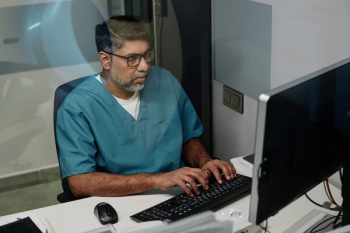
Addressing Sexual Harassment in Radiology
Anastasia Hryhorczuk, M.D., assistant clinical professor of radiology at Michigan Medicine, discusses, during RSNA 2020, the challenges that face radiology with sexual harassment and some strategies to eliminate it.
Sexual harassment -- while it historically has mainly affected women -- can affect anyone in radiology. It creates uncomfortable work environment, stress, and, sometimes, it can negatively impact career paths.
But, within the industry, there are things providers and administrators can do to help eliminate sexual harassment and misconduct. The most important thing, according to Anastasia Hryhorczuk, M.D., assistant clinical professor of radiology at Michigan Medicine, is to acknowledge the problem, create pathways for reporting, and bring more women into leadership. She shared her insights during this year's Radiological Society of North America (RSNA) annual meeting.
Diagnostic Imaging spoke with Hryhorczuk about the specifics of what providers can do and what stumbling blocks exist to reaching this goal.
For more RSNA coverage, click
Newsletter
Stay at the forefront of radiology with the Diagnostic Imaging newsletter, delivering the latest news, clinical insights, and imaging advancements for today’s radiologists.












